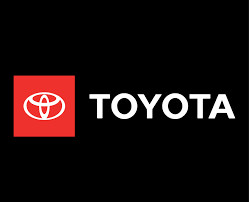
The most daring step yet taken by the Japanese carmaker to get hybrid technology into the core of the American market is the announcement that the next version of the Toyota Camry, the best-selling sedan in the country, will only have a gas-electric hybrid powertrain.
In all front-wheel drive and all-wheel drive configurations, the 2025 Camry will combine a 2.5-liter gasoline engine with an electric drive system calibrated to generate more power, according to Toyota.
According to David Christ, head of Toyota North America, Toyota decided to discontinue its four- and six-cylinder combustion models, which accounted for roughly 85% of sales in the current model year, in order to comply with stricter fuel economy regulations in the United States. This move resulted in the new Camry being an all-hybrid vehicle line.
"The performance we were able to get out of the hybrid," he added, was another consideration in the choice made.
Even while Toyota has advanced the development of electric vehicle technology, the carmaker is still placing its bets on the strength of demand for hybrid and plug-in hybrid vehicles as it adopts a "multi-pathway" strategy to meet consumer demands across all markets.
According to Toyota, the new electronic all-wheel drive system and hybrid drivetrain combine to produce 232 horsepower, which is approximately 15% higher than the previous Camry's mechanical all-wheel drive system.
In advance of the opening of the Los Angeles Auto Show on Friday, Toyota officials introduced the ninth generation of the midsized Camry sedan on Tuesday in Los Angeles.
With the exception of General Motors' Chevrolet Malibu, the Detroit brands have mainly shunned the sector in which the new Camry will compete. Aside from a plethora of small and midsized SUVs, the new Camry's primary rivals will be the few surviving sedans, such the Honda Accord, Hyundai Sonata, and Tesla's all-electric Model 3.
According to data from the California New Car Dealers Association, during the first nine months of 2023, the Tesla Model 3 outsold the Camry in California, a crucial market for Toyota.
The price and fuel efficiency of the 2025 Camry, which is expected to hit dealerships in the spring of next year, were not disclosed by Toyota. Right now, the least priced Camry hybrid model costs roughly $2,400 more than the least costly combustion Camry model.
According to Christ, the majority of hybrid powertrains cost between $1,500 and $2,000 more than combustion ones. "We think the value the hybrid powertrain brings is worth that kind of premium."
The current Camry hybrid is rated for combined city and highway driving at 52 miles per gallon (84 km/l), whereas the standard four-cylinder Camry is rated for 32 mpg. According to fuel efficiency data from the US government, the hybrid vehicle uses less gasoline than the combustion type, saving $650 year in fuel expenses.
Toyota previously adopted an all-hybrid powertrain strategy for the Sienna minivan. "Our second-fastest turning car and the car we have the most reservations for," according to Christ, is the Sienna.
(Source:www.theprint.in)
In all front-wheel drive and all-wheel drive configurations, the 2025 Camry will combine a 2.5-liter gasoline engine with an electric drive system calibrated to generate more power, according to Toyota.
According to David Christ, head of Toyota North America, Toyota decided to discontinue its four- and six-cylinder combustion models, which accounted for roughly 85% of sales in the current model year, in order to comply with stricter fuel economy regulations in the United States. This move resulted in the new Camry being an all-hybrid vehicle line.
"The performance we were able to get out of the hybrid," he added, was another consideration in the choice made.
Even while Toyota has advanced the development of electric vehicle technology, the carmaker is still placing its bets on the strength of demand for hybrid and plug-in hybrid vehicles as it adopts a "multi-pathway" strategy to meet consumer demands across all markets.
According to Toyota, the new electronic all-wheel drive system and hybrid drivetrain combine to produce 232 horsepower, which is approximately 15% higher than the previous Camry's mechanical all-wheel drive system.
In advance of the opening of the Los Angeles Auto Show on Friday, Toyota officials introduced the ninth generation of the midsized Camry sedan on Tuesday in Los Angeles.
With the exception of General Motors' Chevrolet Malibu, the Detroit brands have mainly shunned the sector in which the new Camry will compete. Aside from a plethora of small and midsized SUVs, the new Camry's primary rivals will be the few surviving sedans, such the Honda Accord, Hyundai Sonata, and Tesla's all-electric Model 3.
According to data from the California New Car Dealers Association, during the first nine months of 2023, the Tesla Model 3 outsold the Camry in California, a crucial market for Toyota.
The price and fuel efficiency of the 2025 Camry, which is expected to hit dealerships in the spring of next year, were not disclosed by Toyota. Right now, the least priced Camry hybrid model costs roughly $2,400 more than the least costly combustion Camry model.
According to Christ, the majority of hybrid powertrains cost between $1,500 and $2,000 more than combustion ones. "We think the value the hybrid powertrain brings is worth that kind of premium."
The current Camry hybrid is rated for combined city and highway driving at 52 miles per gallon (84 km/l), whereas the standard four-cylinder Camry is rated for 32 mpg. According to fuel efficiency data from the US government, the hybrid vehicle uses less gasoline than the combustion type, saving $650 year in fuel expenses.
Toyota previously adopted an all-hybrid powertrain strategy for the Sienna minivan. "Our second-fastest turning car and the car we have the most reservations for," according to Christ, is the Sienna.
(Source:www.theprint.in)














